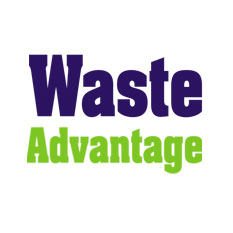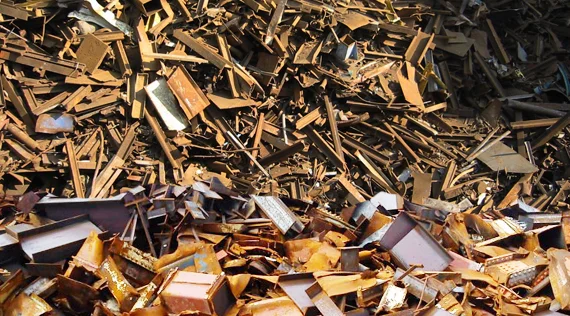OC Waste and Recycling: From Waste Disposal to Resource Management
Waste & Recycling | 2023-01-30 00:21:08
In addition, OCWR has initiated negotiations for the current Waste Disposal Agreements that will expire in 2025.
SEATTLE (Waste Advantage): OC Waste & Recycling (OCWR) has 287 employees, serving the County’s solid waste disposal needs by providing waste management services, operating public landfills, protecting the local environment, investing in renewable energy enterprises, and performing and promoting recycling to ensure a safe and healthy community for current and future generations. Providing a landfill and resource recovery system that safely manages waste, recycles resources, and protects the environment for all Orange County residents and businesses in 34 cities and unincorporated areas, OCWR also manages one of the nation’s premier solid waste disposal systems and two organic compost facilities, with a third greenery opening in 2023.
Developing Sustainable Operations
At OCWR, they have been using the term “industry transforming” to describe the California state legislation that has been taking shape over the last few years. “That term is not a reach or exaggeration,” says Tom Koutroulis, Director of OC Waste &
Recycling. Legislation began with Assembly Bill 939 in 1989, which set into motion major industry recycling mandates that continue to have significant impacts on cities, waste haulers, and OCWR’s landfill operations. AB 939 required that all jurisdictions divert 50 percent of the waste being generated from going to the landfills. However, now a series of several pieces of legislation have upped the game, such as Senate Bill 1383 that sets goals to reduce disposal of organic waste in landfills, ensuring that food scraps are composted or recovered for human consumption by 2025. “Currently, OCWR has undertaken the unprecedented challenge of developing a regional organic waste management program for the County of Orange,” continues Koutroulis. “We developed local infrastructure and built sustainable composting operations co-located at Orange County landfills to support the recycling of organic materials.”
These activities contribute to meeting diversion mandates as well as meeting California’s statewide goal of diverting organics from disposal to achieve climate change-related reduction targets. The composting operations will also help preserve landfill capacity and extend the lifespan of the landfills for future generations. “To date, OCWR has designed and constructed organic processing facilities at two of the municipal solid waste landfills. A third facility is under construction and is scheduled to be operational in early 2023. The County composting facilities being built ensure a local solution to recycle organic materials long after the landfills have reached capacity,” says Koutroulis.
OCWR has undertaken the unprecedented challenge of developing a regional organic waste management program for the County of Orange. Aerial view of Bee Canyon Greenery at FRB Landfill in Irvine, CA. Photo courtesy of Christopher Sanchez.
In addition, OCWR has initiated negotiations for the current Waste Disposal Agreements that will expire in 2025. The current contracts focus on waste collection and disposal in the county landfills, while future contracts will pivot from “Waste Disposal Agreements” to “Waste Infrastructure System Enhancement Agreements”, which will reflect the SB 1383 legislation mandates for recycling and diversion of organic waste. Koutroulis points out, “SB 1383 impacts more than just Orange County, it impacts all of California. At OC Waste & Recycling, we have been preparing for these changes, but meeting the mandates is as much about education in the community as it is about operations and processes.”
Community Partners in Education
On the education front OCWR continues to be active in schools and the community, answering questions from residents, holding public meetings, providing landfill and greenery tours, and creating beneficial infrastructure and resources. OCWR has partnered with the Orange County Department of Education to successfully provide waste diversion education directly into classrooms. “We’re providing teachers with valuable tools to build the next generation of environmental stewards. Our K-12 standards-aligned curriculum focuses on classroom lessons, student activities, and family engagement related to recycling and best practices,” explains Koutroulis. Since 2007, OCWR has also provided $4.6 million in grants to local non-profits and cities to support programs that help divert waste from Orange County’s landfills. These grants helped communities address their own unique waste diversion challenges—from battery recycling to school recycling programs and commercial food waste diversion, they have moved the needle for Orange County’s waste diversion efforts.
Partnerships with Discovery Cube OC, Angels Baseball, and the Anaheim Ducks Hockey Club provide OCWR with the opportunity to teach thousands of students and families countywide about the importance of composting and their role in recycling. “Our combined education programs reach students and families through school garden sponsorships, school scholarships, a county-sponsored, hands-on recycling exhibit, and online education tools,” says Koutroulis. Outside of the classroom, OCWR encourages
organic diversion all year long. “We hosted two free Compost Giveaways in 2022, providing more than 177 tons (i.e., 354,000 lbs.) of compost to our residents. These events raise awareness of the importance of composting in addition to providing healthy organic material back into the communities. Koutroulis points out that as important as it is for OCWR to report on the tonnage accepted and buried each year, it is equally important to count and measure the space in the landfills that did not get filled. “We call this preserving airspace, and our pivot to resource recovery is already paying dividends. The airspace preserved in 2022 is roughly equivalent to the space of more than nine Olympic-sized swimming pools. We also recovered 27,262 mattresses, 2,162 tons of scrap metal, and 16,842 tons of green waste repurposed for composting.”
Courtesy: www.wasteadvantagemag.com
 By
By 